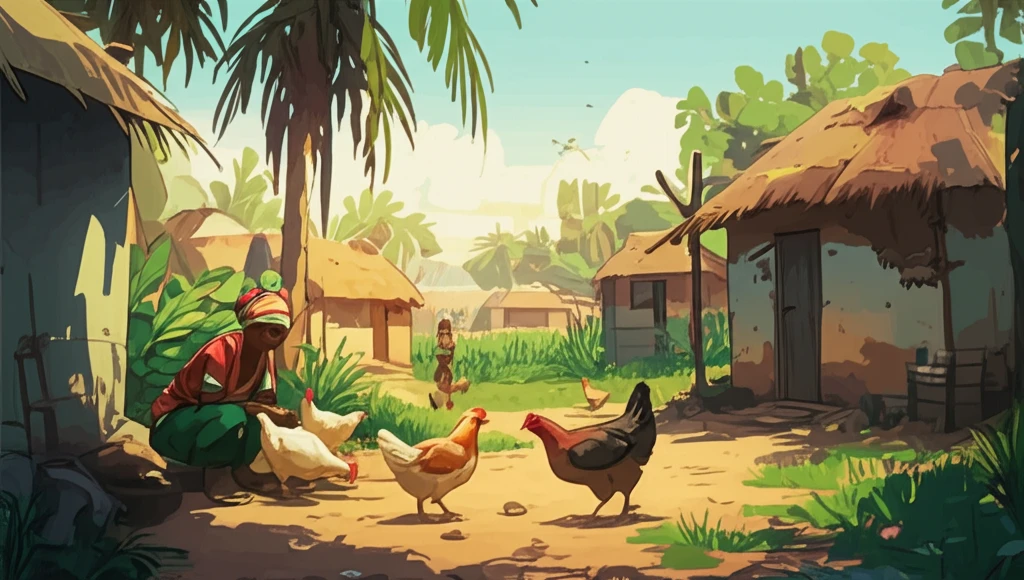
Backyard Bounty: How Indigenous Chickens are Transforming Niger's Farms
"Discover how local chicken breeds are boosting food security and empowering communities in Niger, offering a sustainable path to rural development."
In the heart of Niger, a silent revolution is taking place in the form of indigenous chicken farming. This practice, deeply rooted in the local culture, is proving to be a game-changer for rural communities, offering a pathway to enhanced food security and economic stability. As families increasingly rely on these resilient birds, it’s crucial to understand the transformative potential of this agricultural approach.
For many Nigeriens, local chicken breeding isn't just a source of sustenance; it's a vital component of their livelihood. These chickens provide a readily available source of animal protein and income, particularly essential for those in rural areas. As Niger strives to improve the productivity of its poultry sector, a closer look at the traditional methods and challenges faced by local farmers becomes indispensable.
Recognizing the need for deeper insights into this sector, a comprehensive socio-economic and technical survey was conducted from July to August 2017. This study aimed to gather essential information about family poultry keeping practices across Niger, setting the stage for informed strategies to support and enhance this crucial agricultural activity.
Empowering Women Through Poultry

The survey revealed that a significant 43.1% of local chicken producers in Niger are women. This statistic underscores the critical role women play in agricultural production and household economics. By engaging in poultry farming, women gain not only a source of income but also increased autonomy and decision-making power within their families and communities.
- Diseases (45%)
- Lack of adequate housing, leading to increased predation (16%)
- Insufficient feed (11%)
- Limited access to training and resources (8%)
A Future Powered by Chickens
Indigenous chicken production holds immense potential for driving sustainable rural development in Niger. By empowering women, enhancing food security, and strengthening community bonds, this agricultural activity offers a pathway to a brighter future for countless families. Addressing the challenges of disease, housing, and access to resources is essential to fully unlock the transformative power of these humble birds.
